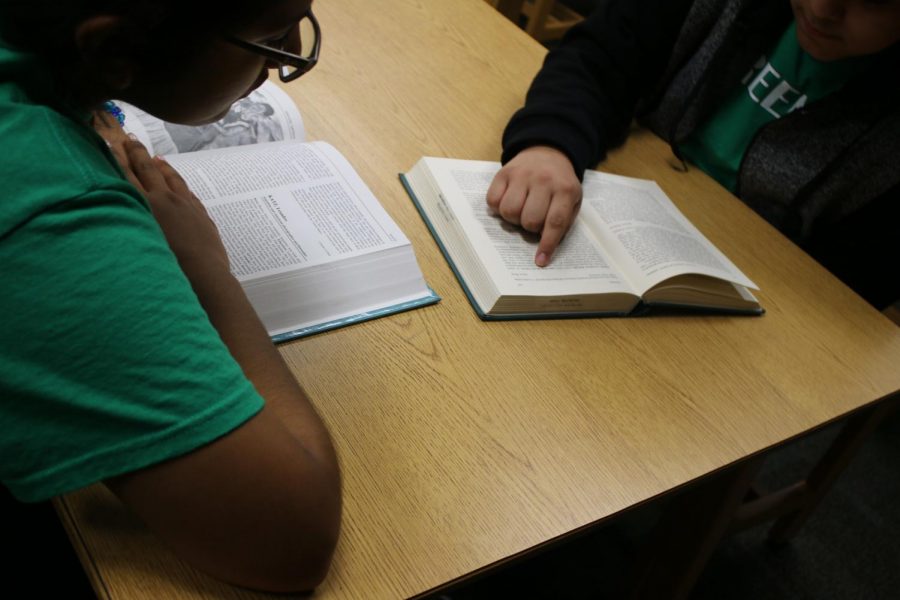New tutoring program pairs students with students

More stories from Yasmin Herrera
The new Colt-to-Colt peer tutoring program partners students who feel confident in helping students who struggle.
When students struggle in class some find it hard to go to their teachers for tutoring. They feel like they can’t approach their teacher, they don’t want to look stupid, or maybe they just don’t understand how their teacher explains it. For special needs students, there is now a new tutoring program that removes the teacher and pairs students with students.
Colt-to-Colt is a “peer tutoring program where we try to partner students who feel confident in helping students who struggle,” Jeremy Houghton, Special Education Department Leader, said.
“This is the pilot year as far as implementation. The point is really to help whoever needs it.”
Students currently enrolled as tutors were originally office aides until they were pitched the idea of joining the program.
“I figured it would look good on my college resume and I can help other people,” junior Madison Barnes said. “[I hope to be] a good influence on other people.”
The chosen students attended orientation for a few weeks and made a list of subjects they were comfortable in helping with. Afterwards they were assigned to one of the subjects from their list and had a trial run to see if they wanted to continue with that class.
“I have asked teachers if they had any classes that would benefit from a peer tutor, whether it be individual students or multiple students,” Houghton said.
Clubs and organizations that require service hours have also given their support. Student Council, PALs, NHS and Key Club are willing to accept time spent tutoring as service hours with commitments ranging from 12 hours to matching them one to one.
“I feel like I’m helping kids who normally would not complete their daily work and helping them get better grades,” junior Cormack Brown said. “They also offer service hours for NHS which will look good on my college applications.”
Students interested in being tutors in the spring semester may sign up by speaking to their counselors. They will need a teacher recommendation and a clear behaviour record.
“We would like for this to be a class that any student could sign up for when they are creating their schedule each year,” Houghton said. “This would be an alternative to being an office aid or teachers aid. There’s not a specific number of peer tutors we want because even one will make a difference to a student or class that is struggling.”

Howdy folks! This is my 3rd and final year on staff. Besides being here in the newsroom I am also in PALS ll and the Secretary of Key Club. This year my...

